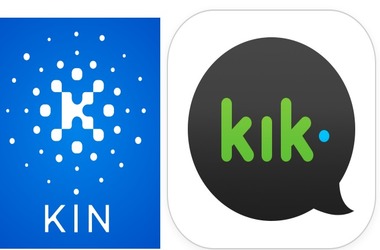
The wallet app Kinit is cleverly designed for keeping the user engaged. The app enables users to earn Kin by taking part in surveys, quizzes and watching interactive videos.
The kin rewards can be exchanged for gift cards from popular brands and retailers. The tokens can also be transferred between users within the Kinit ecosystem.
Commenting on the launch, Rod McLeod, Kik’s vice-president of communications, said
“Kinit is the first publicly available app dedicated to Kin. Our goal with Kinit is to get Kin into more consumers’ hands. It’s a major step towards making crypto truly consumer-friendly through fun and engaging experiences, and we plan to learn and iterate based on real-world user behavior…”
Kin token’s ICO was completed in September 2017. More than 10,000 investors from over 117 countries pooled in $100 million. The firm initially anticipated to raise $125 million.
Kin was initially planned to run on Ethereum network. However, the much talked about congestion of the Ethereum network made Kin developers change their plan to migrate to Stellar Network. In order to capitalize on the advantage of both the blockchain networks, Kin’s founders decided to run its platform in Ethereum as well as Stellar. Finally, the team went on to fork the Stellar network and used it to deploy its platform. Kik is spending about $3 million for the development of the token via its KinEcosystem site. The Kinit app is the first attempt to get common users to embrace the tool.
Notably, in March, Kik entered into a strategic partnership with Unity Technologies video gaming company to fuel the mainstream adoption of Kin token through the gaming sector.
Regarding the partnership with Unity, Kik said it will “bring cryptocurrency to millions of gaming developers,” enabling integration of tokens into games using a customized gaming-specific software development kit (SDK) developed by Kik.